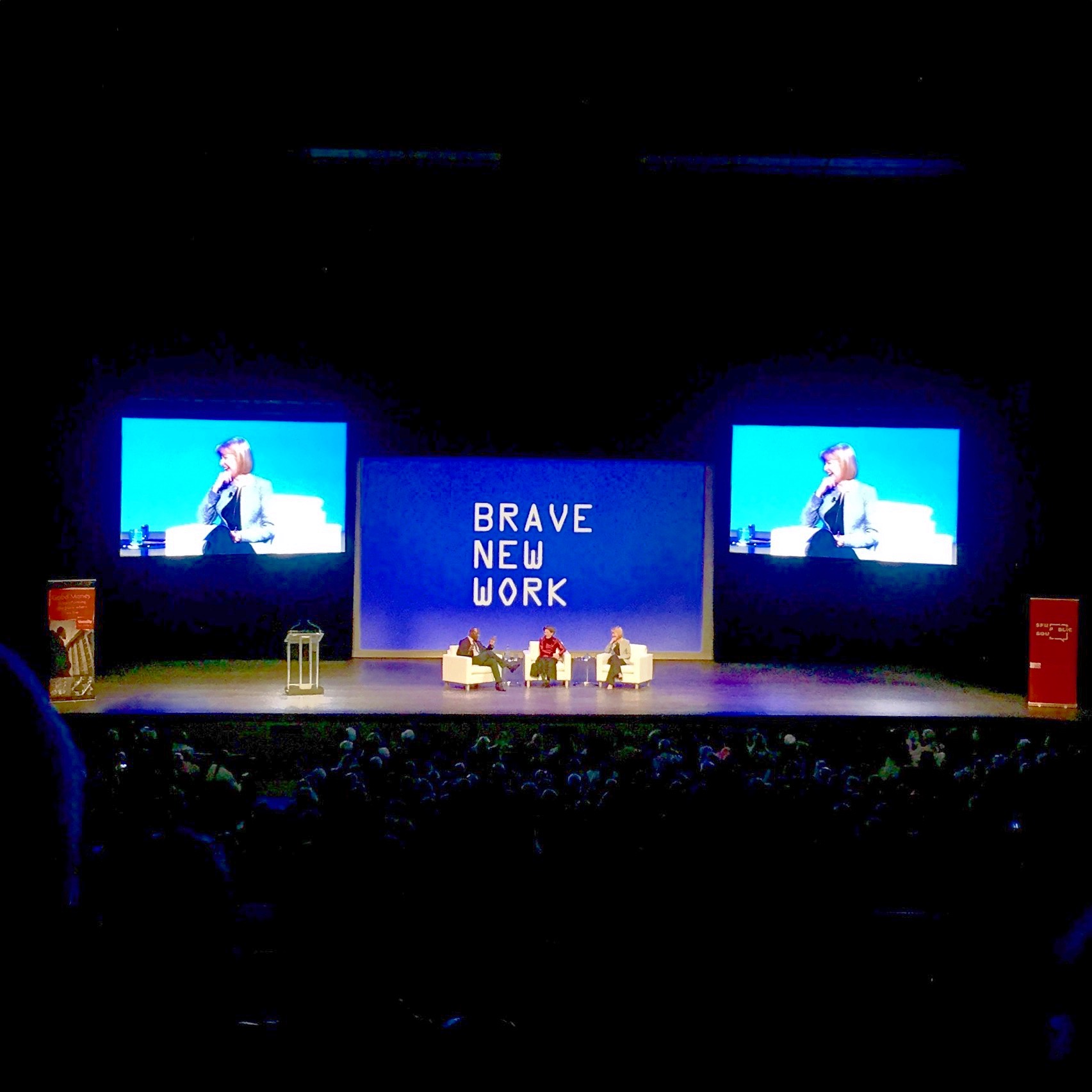Thriving in the brave new world of work
Freelancers — with our flexible working hours, multiple income streams and oft-precarious employment status — probably understand better than most people how the world of work has changed over the past couple of decades.
But everyone else seems to be catching on these days, too. “The future of work” has become a hot topic for lectures and conferences, the most recent of which is Brave New Work, Simon Fraser University’s 2018 community summit, currently underway in Vancouver.
The summit keynote brought together two American public commentators this week, Anne-Marie Slaughter and Van Jones, to share their thoughts about the ways citizens and governments can come together to shape the future of work.
In fact, Slaughter pointed out right off the top that the new world of work has already arrived. “It’s not about abstract futures, but what’s happening right now and how we can develop for it, plan for it, and improve it to make sure that it is a brave new world and not a nightmare,” she said.
Automation poses a huge challenge. But Jones pointed out that while many jobs will certainly be taken over by robots, it’s hard to automate empathy, innovation and creativity. And despite the threat of automation, both Slaughter and Jones emphasized the value of technology as a tool to help us navigate the new world of work.
“We need to enlist technology as part of social change,” said Jones.
Slaughter said that changing technology has the potential to open up more opportunities in media work to more people. Technology, she said, also offers creators the opportunity to actually be the owners of their creations.
Slaughter also spoke of the need for different kinds of social supports as we move deeper into the gig economy. Temps and other contingent workers, she said, need a safety net in order to build towards a secure future. She believes that basic income is an idea worth exploring as we look for ways to reinvent the social safety net.
An audience member raised the question of whether it’s a luxury or a necessity to find meaning in your work. Of course meaning matters, said Slaughter, but what’s most important is security. Most people want stability of income over meaning and purpose.
Another audience member asked whether unions have a place in the new world of work. Yes, said Jones. Anything that brings more solidarity and more social cohesion in our increasingly fragmented communities is a good thing regardless of the economic benefits, he said.
But Slaughter suggested that unions need to find new ways of organizing. Having unionized workers on one side of the fence and fissured workers on the other isn’t going to work, she said. Organizing the new workforce is going to have to look much different than union organizing looked 100 years ago.
In fact, from unions to workers themselves, the ability to adapt is of vital importance. With the rapid pace of change in the digital era, the ability to plan — and carry out a plan — is no longer a key value, said Jones. More important, he said, is the ability to pivot.
And the big problem, said Jones, is that, as a society, we have to unlearn so much. Everything has changed so profoundly that the old ways just don’t work anymore. We need to recognize a paradigm and then delete it and build a new one, he said, and keep doing that over and over again.
Perhaps the first piece of good news for freelancers is that adaptability, creativity and flexibility are our greatest assets. And the second is that growing numbers of people are interested in gathering together at events such as this one to reflect on the challenges facing the contingent workforce.
Surely recognizing the problems at hand is the first step towards building a better world for the freelancers of the future.




